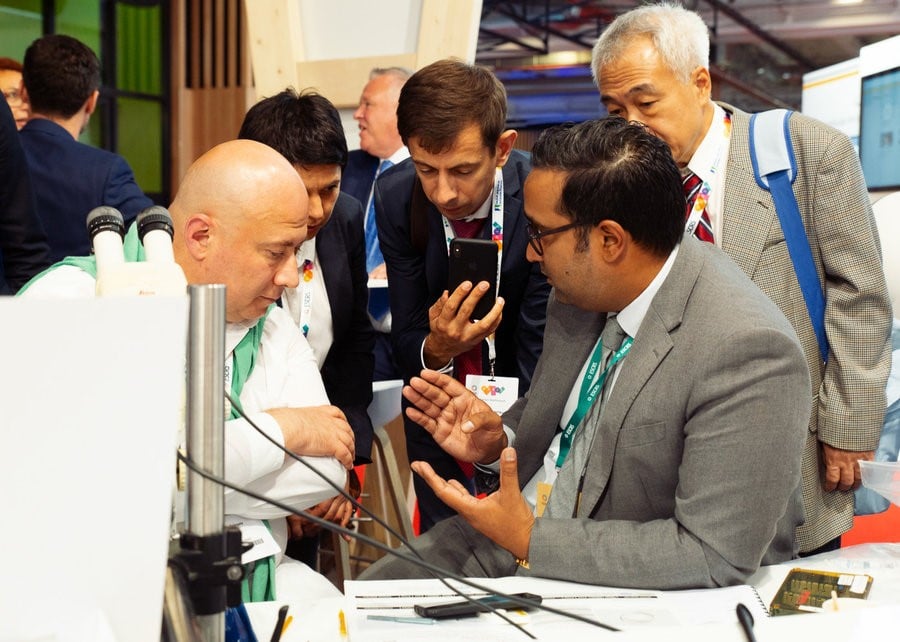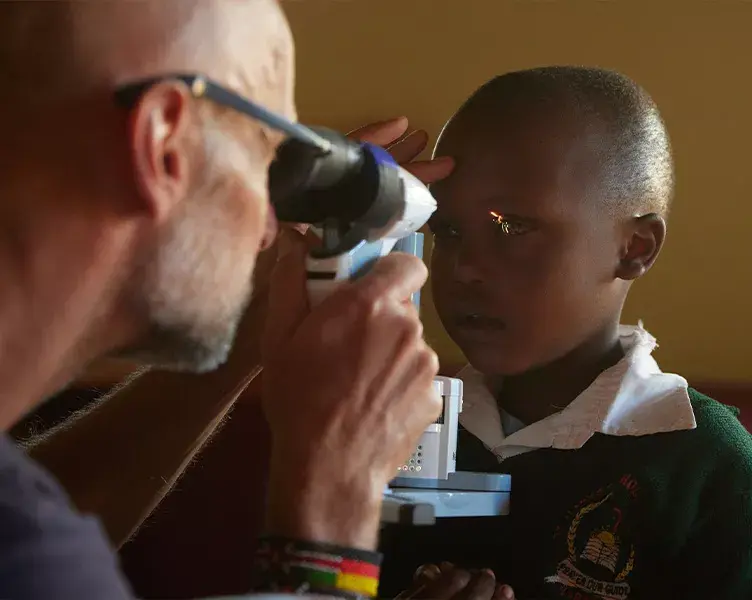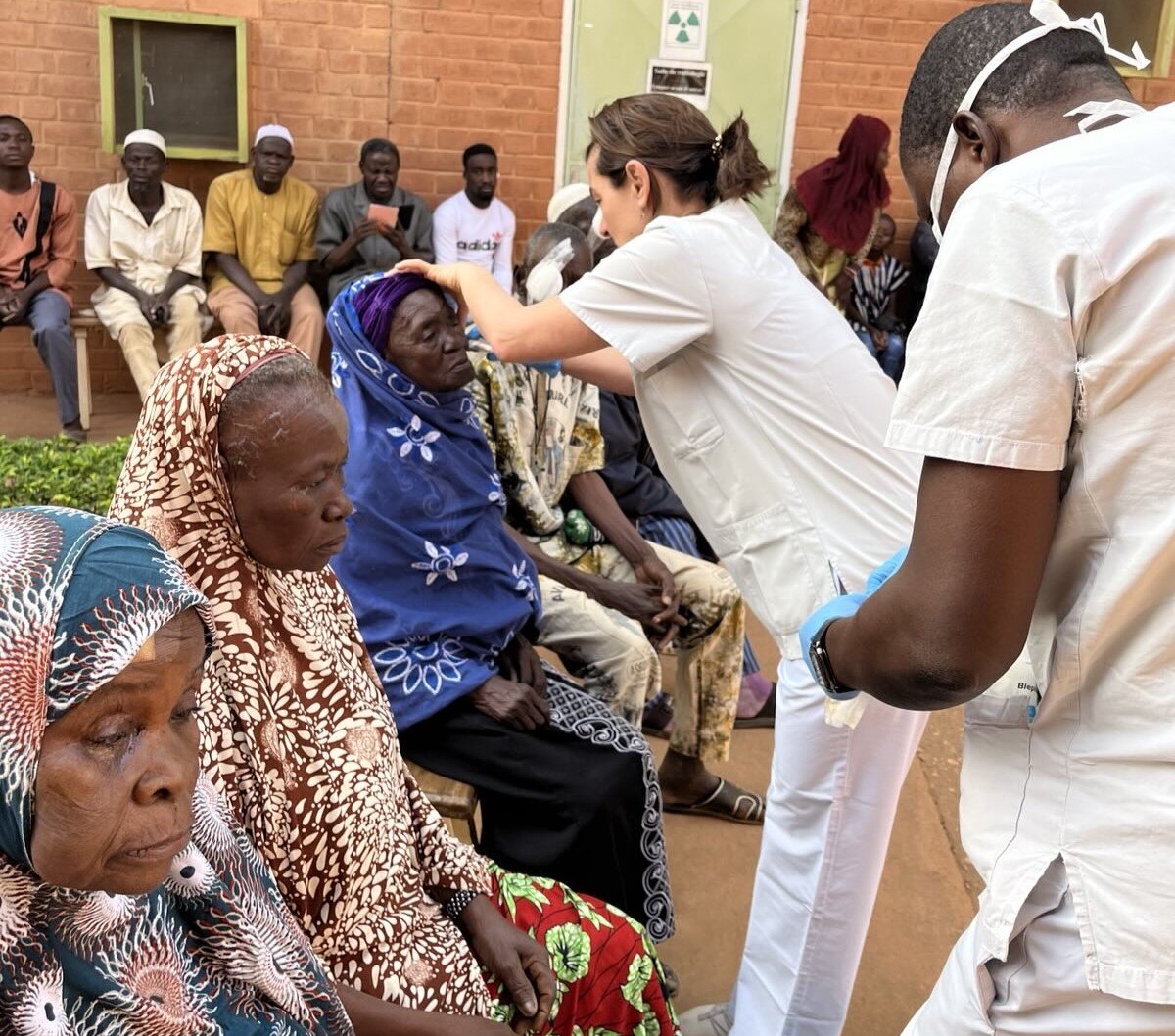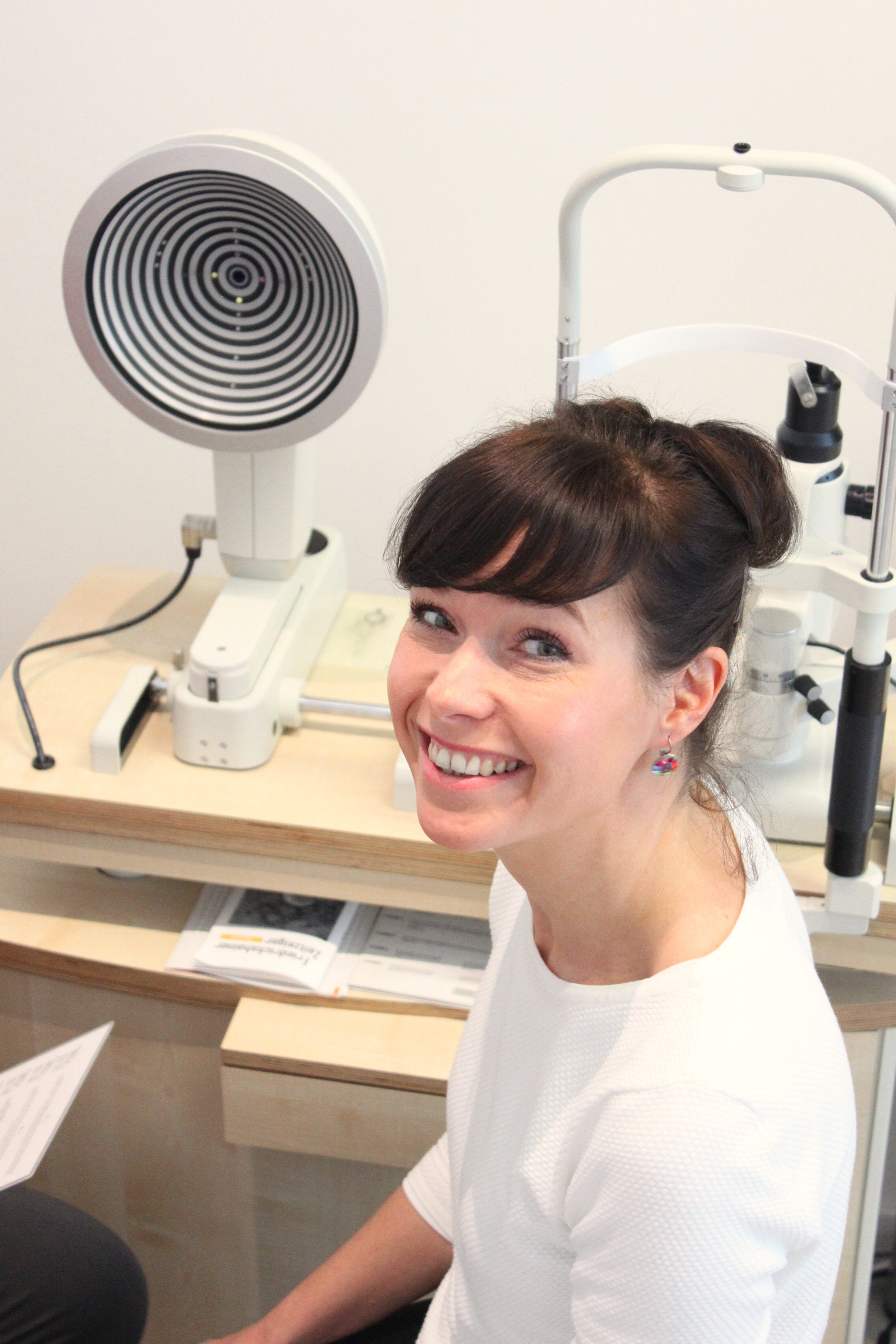What did you study before you started working here?
“I studied biochemistry and then held research positions at a number of hospitals. I saw the job vacancy at Ophtec and it really appealed to me: combining sales and science is a different way of working in this industry. Just like the doctor I want the patient to see well. It is important that doctors trust us and know what we are good at. Sales will then follow automatically. I don’t tell them how to perform surgery, they have studied for that. We can, however, give them good advice.”
“I visit a lot of ophthalmologists and optometrists and tell them about our products and how they are different or distinctive. I may be a sales person, I am also an advisor: with my broad knowledge of ophthalmology and our products, combined with my biochemical background, I can really help our customers. I can, for example, give them advice on patient selection, based on measurements that hospitals or clinics perform themselves. We specialise in premium lenses that not only correct presbyopia, but multiple vision distances and astigmatism as well. Insurers in the Netherlands do not pay for these premium lenses, which means patients have to pay anywhere between 500 to 2000 euros themselves. So it’s important that we advise clinics on how to justify this expense to their customers."
How do you calculate what the best lens is for a patient?
“Calculations for the most suitable lens have many variables. We help make the best possible decision. We ultimately combine the data from all the machines into a recommendation. Especially in combination with our lenses, our advice is certainly appreciated and helps doctors implant the lenses with more confidence.
“A standard lens only has one focal point. With premium lenses, you can create multiple focal points, which gives good vision at multiple distances. We can also correct cylindrical eyesight problems. In these lenses, we have to cut different focuses/dioptres, which is very difficult.”
“We now make so many different kinds of premium lenses that we can basically supply them to size. Our equipment keeps improving, so we may be able to offer 100% customisation in the future. We currently work with increments of 0.5 dioptre, which will be further refined to 0.25, but at a given point the human eye cannot tell the difference any longer.
Do you like working for Ophtec?
“I’ve been working for Ophtec for 6 years now and I still like it here. My work is very varied: from assisting in an operating room to having meetings with doctors to discuss what works well and what doesn't. I talk to a lot of people at various levels in clinics about our products.”
“It helps to understand how the eye works. I didn’t know this at first, but I have read a lot about it. The subject matter is more difficult if you’ve done a commercial study, but fortunately I have a background in science. It’s easier to perform the calculations if you’re good at science.”
“My job as Account Manager is very varied. I am, as it were, a consultant and trouble shooter for my customers. They often present special cases to me, for which I consult the literature to find similar cases so that I can help the customer as best I can. I don’t take a catalogue to surgeons to show them what we sell.”
“It’s by no means an easy job; you have to have a lot of patience and good people skills. I love the people interaction and life long learning within my job!”




